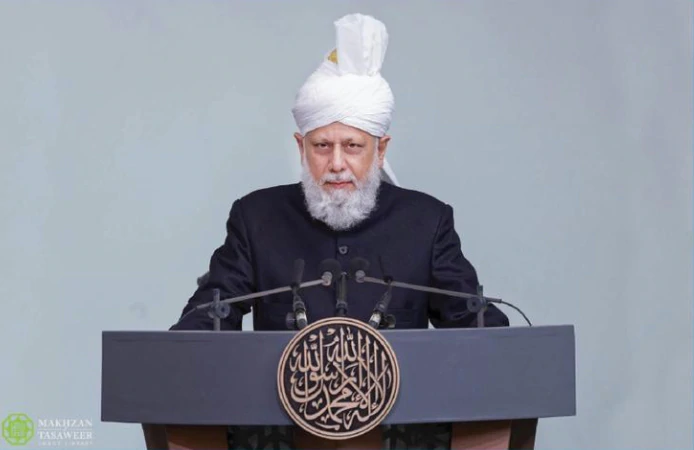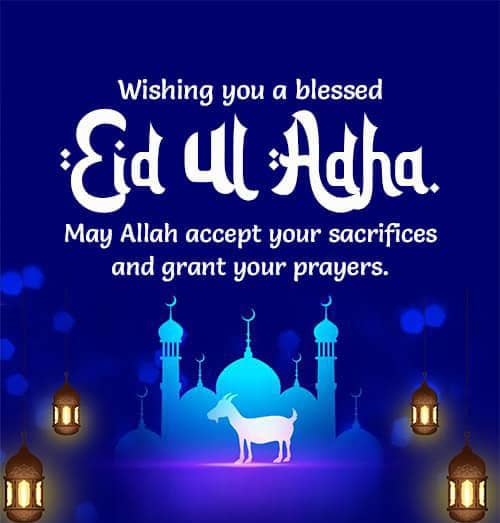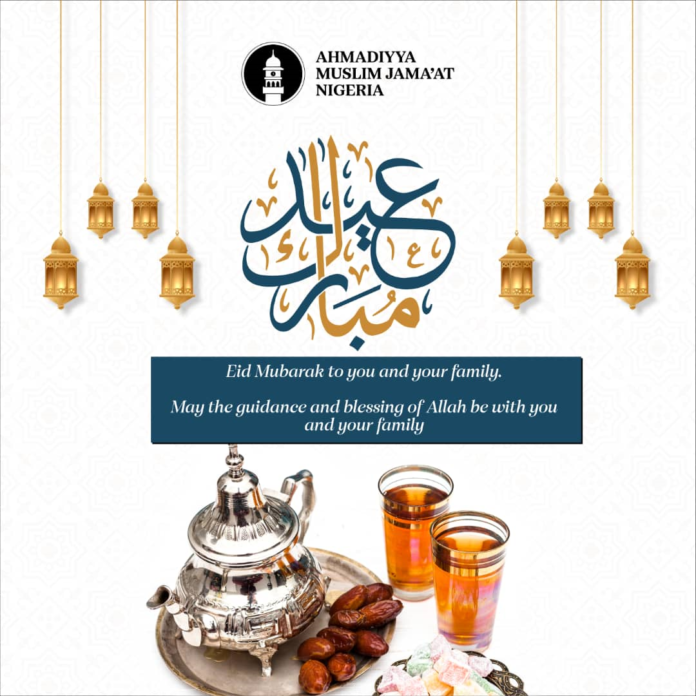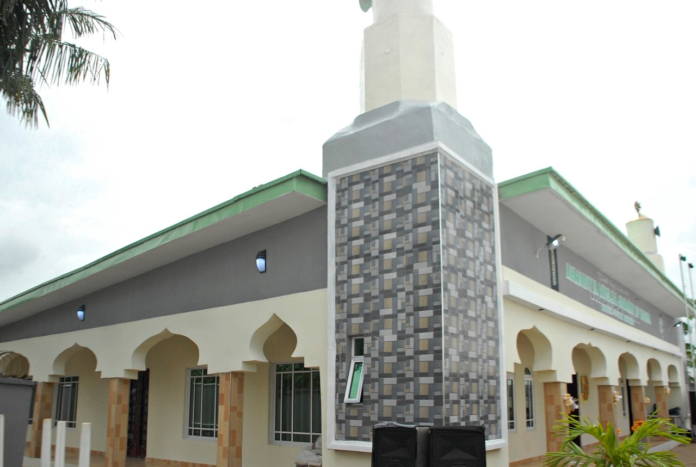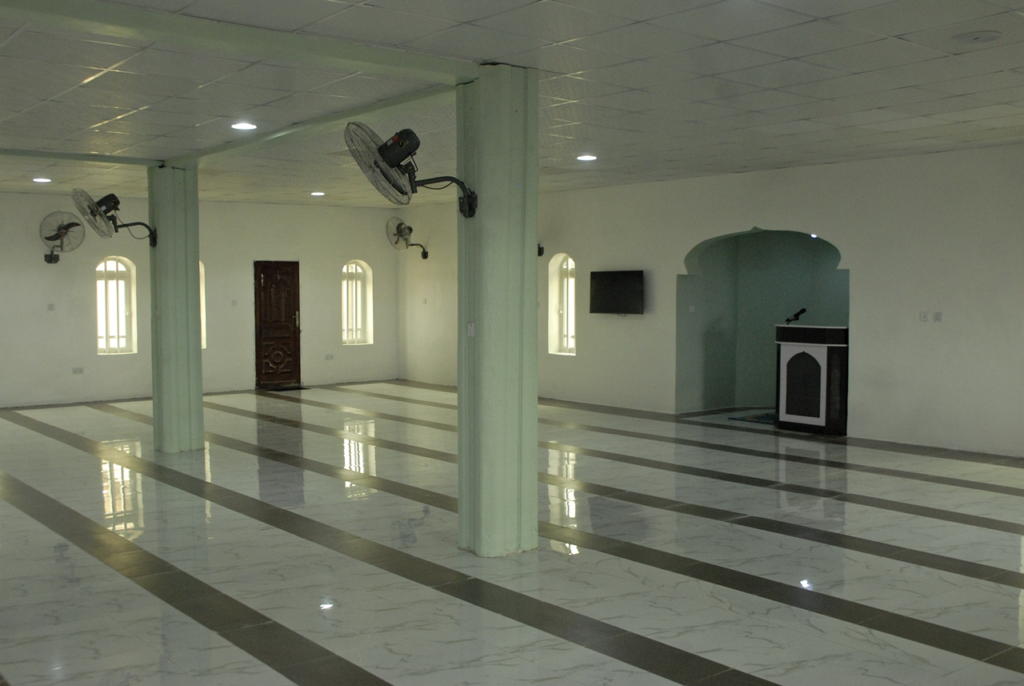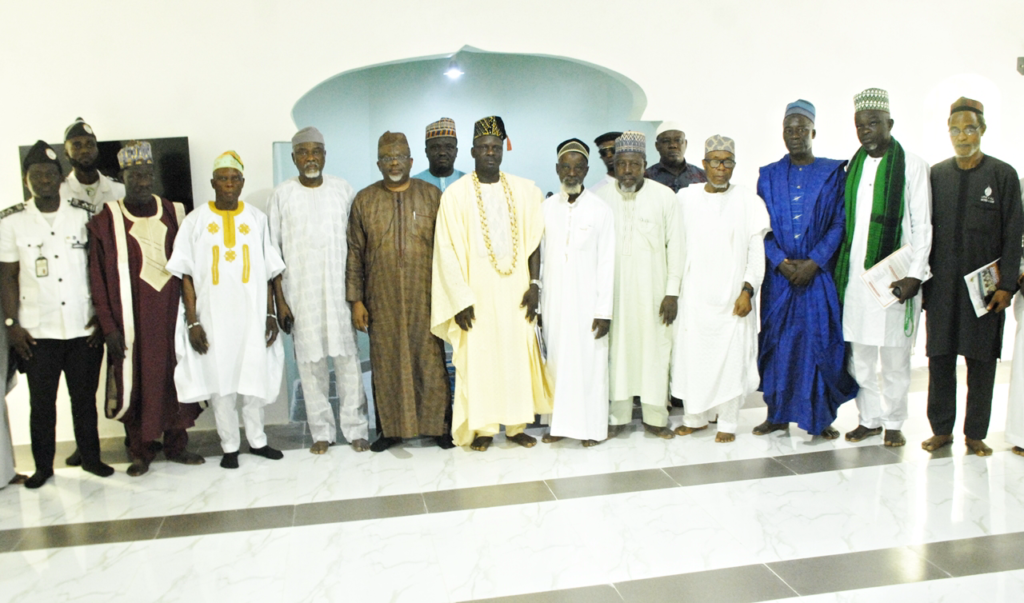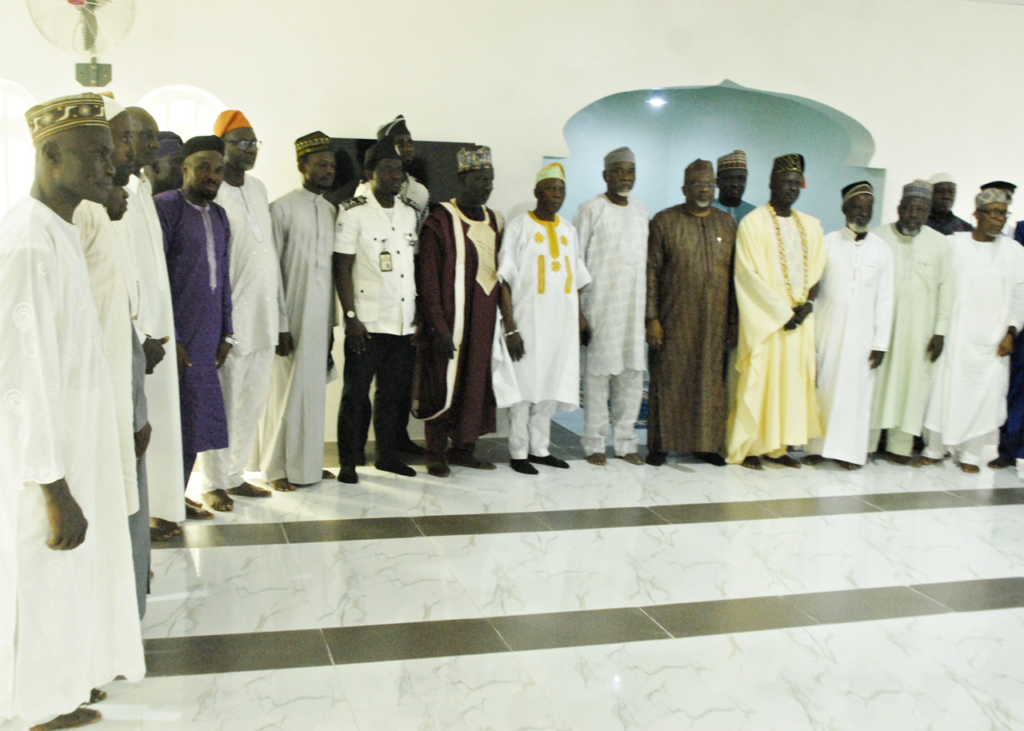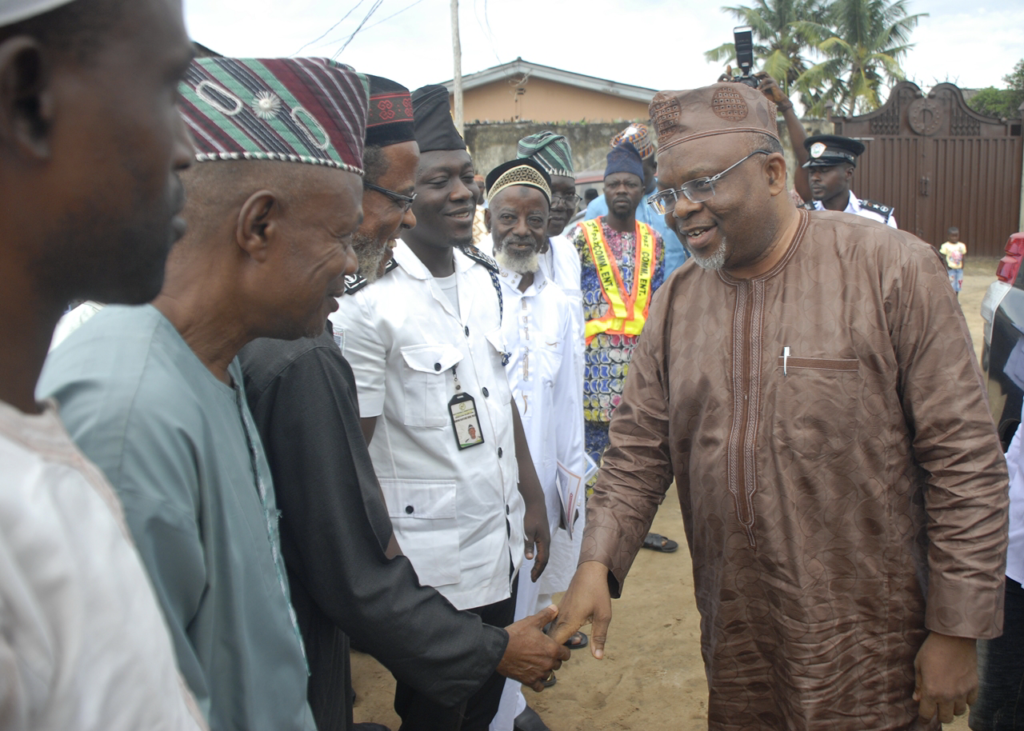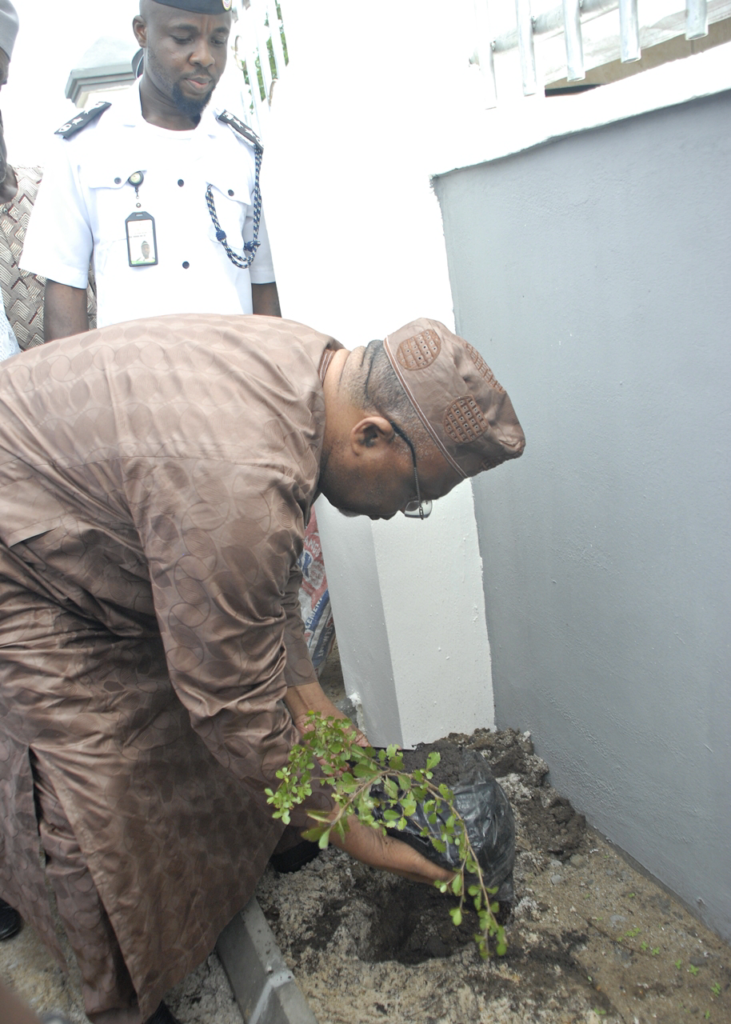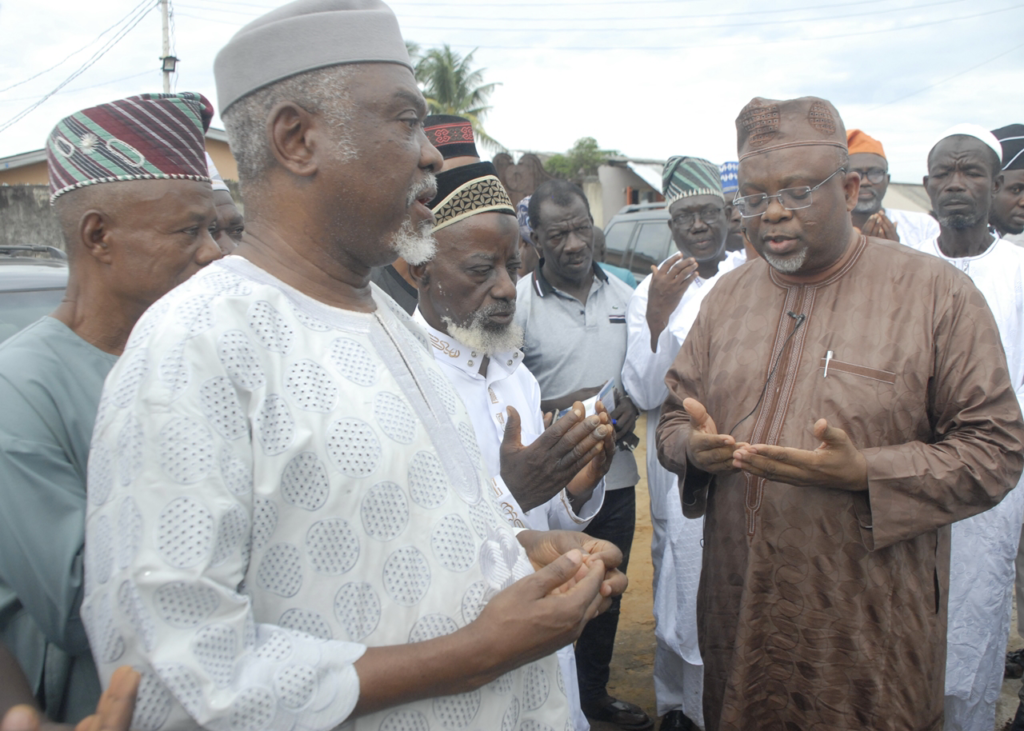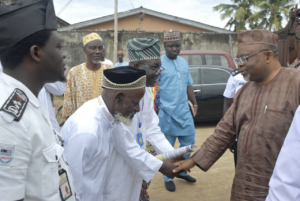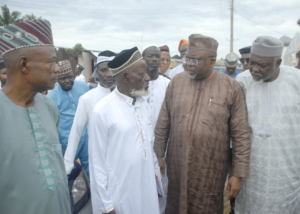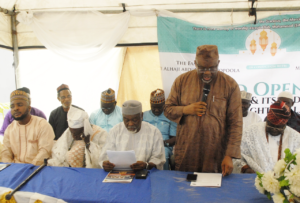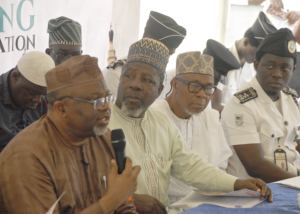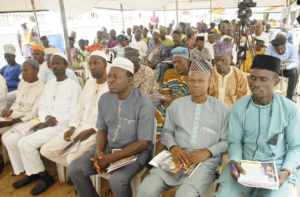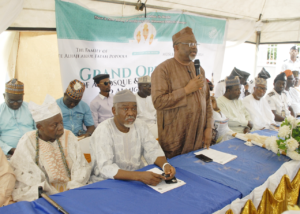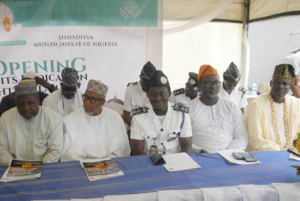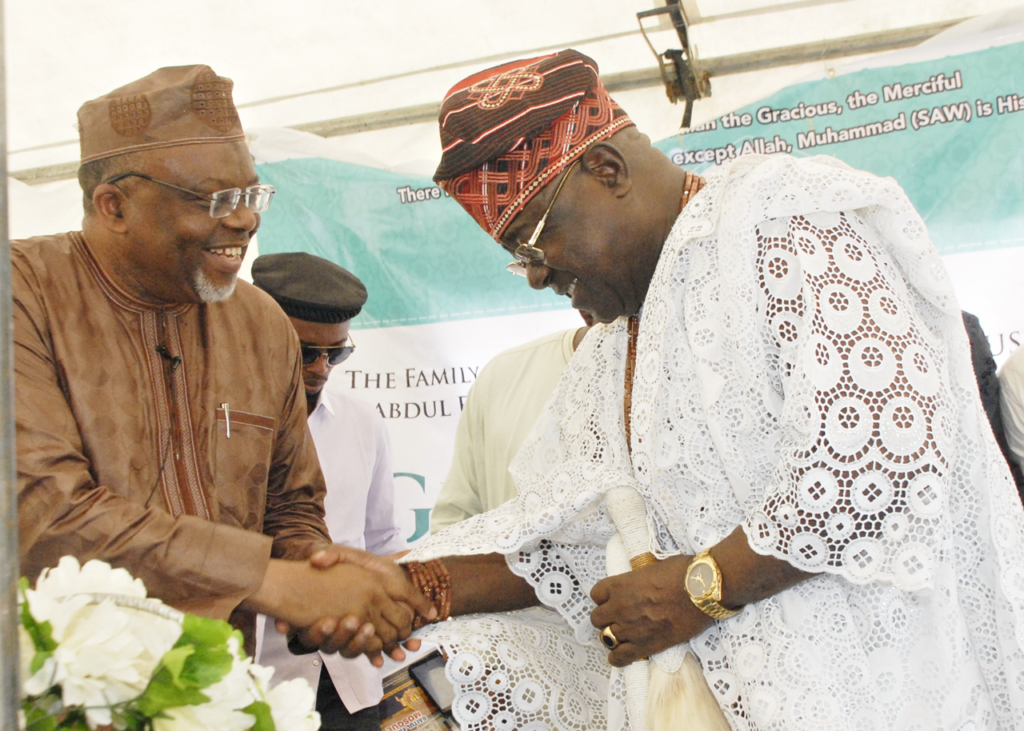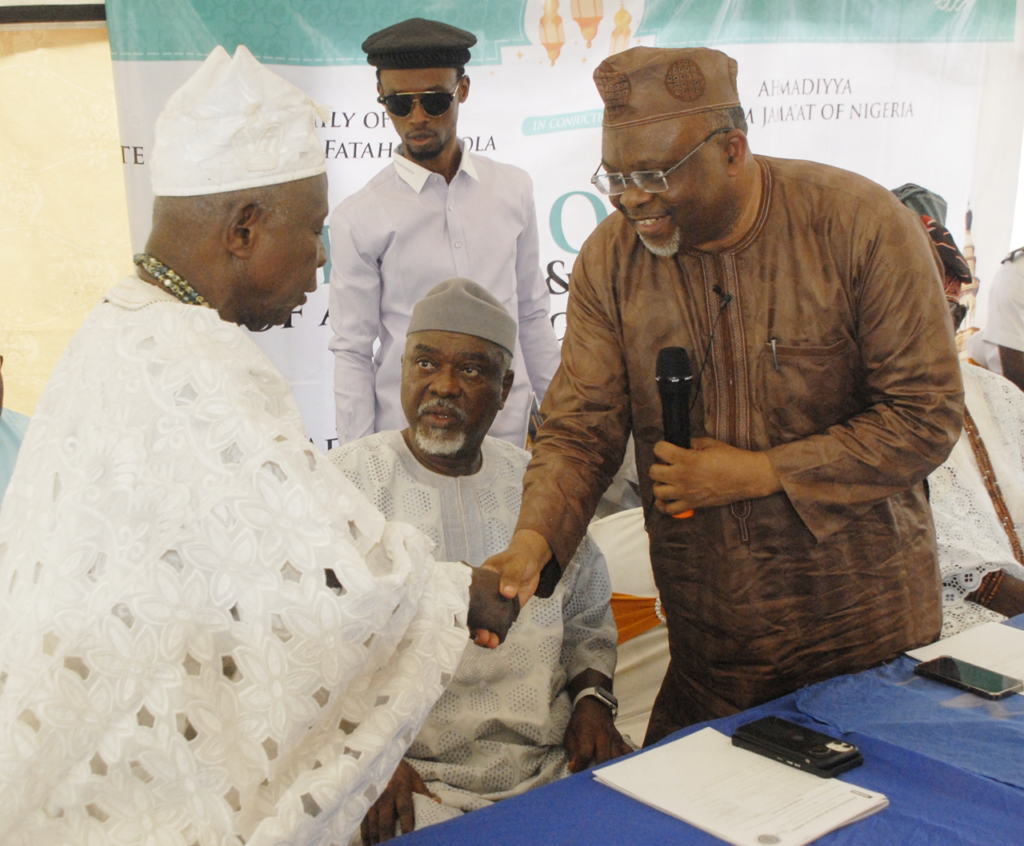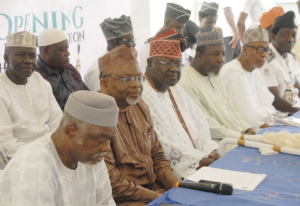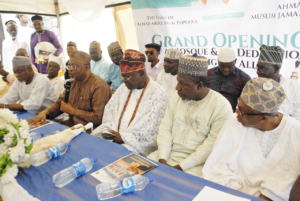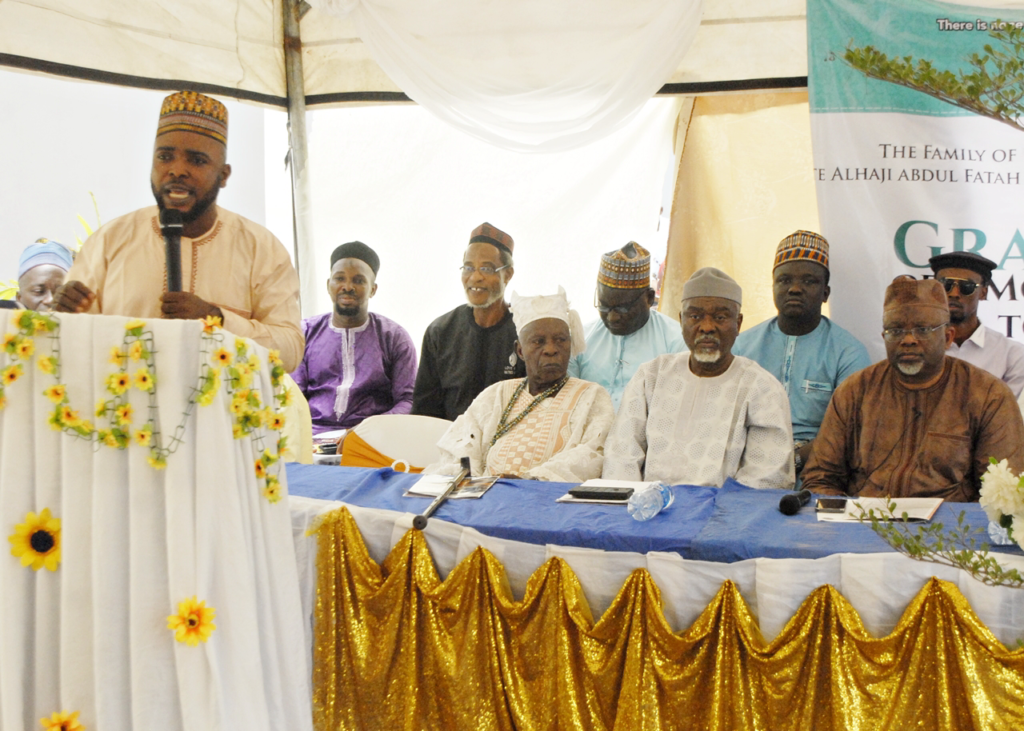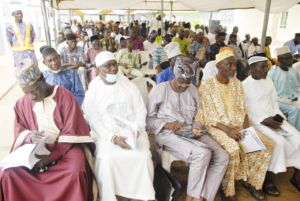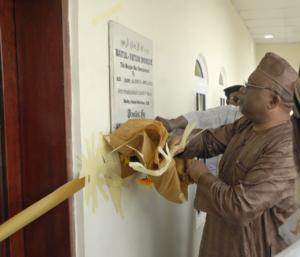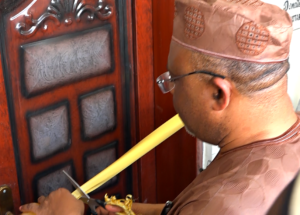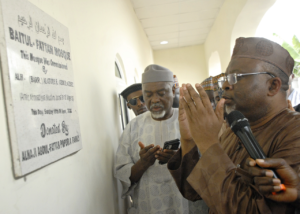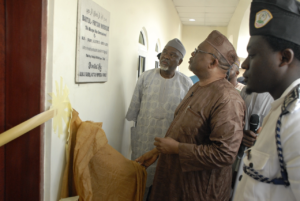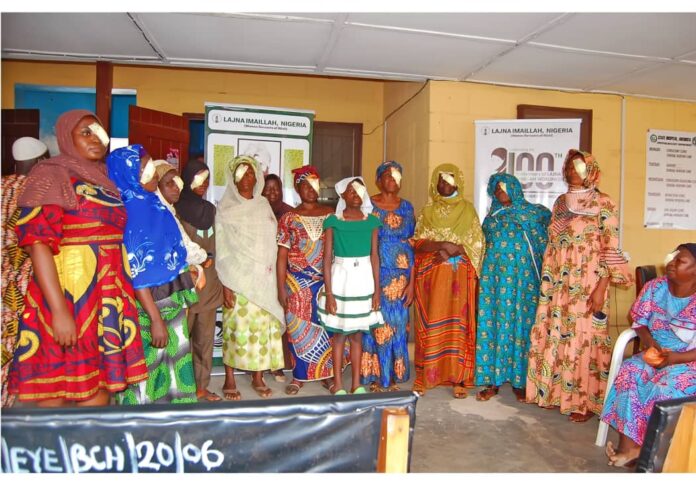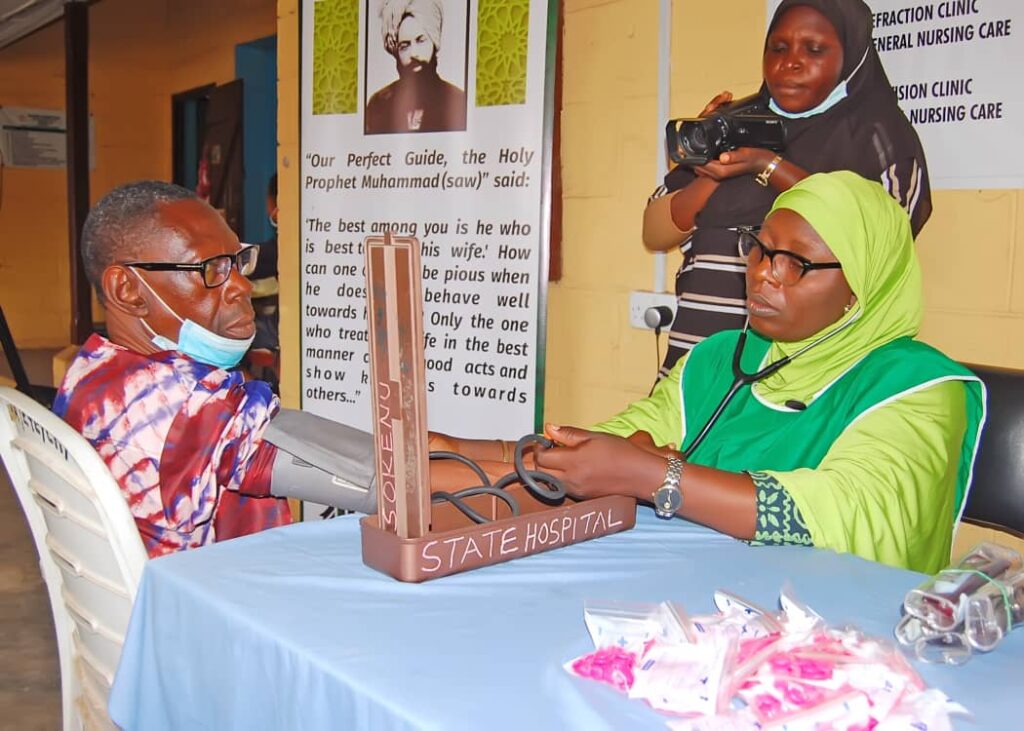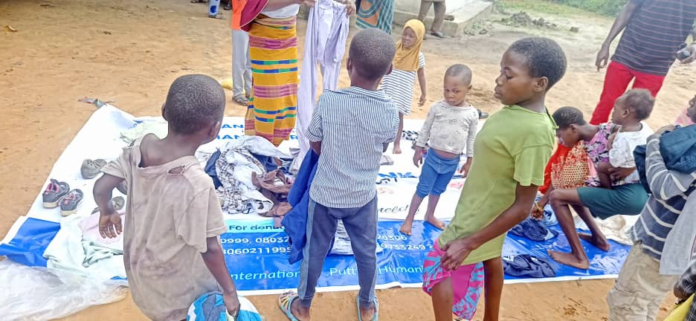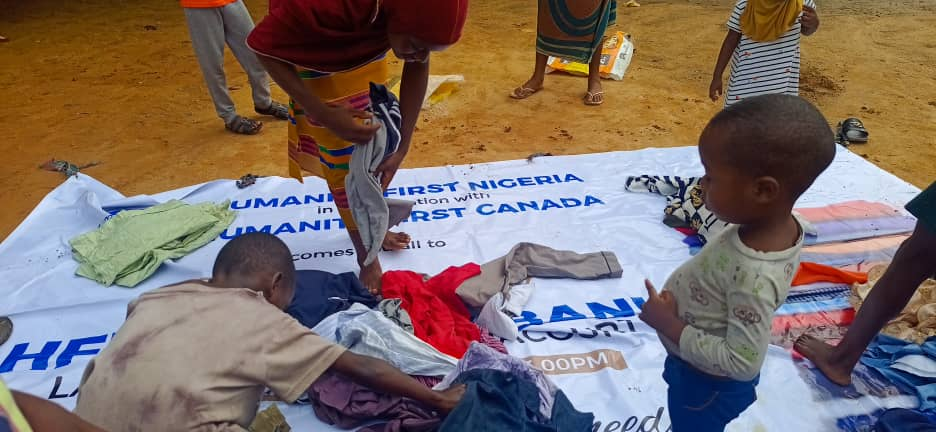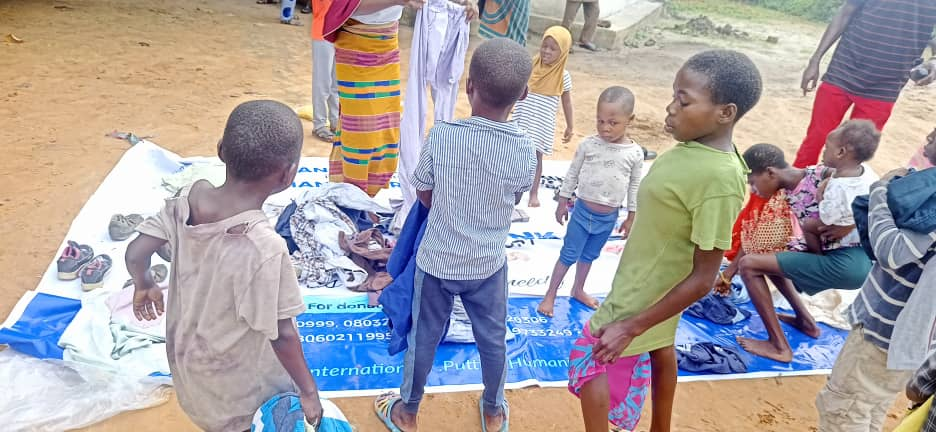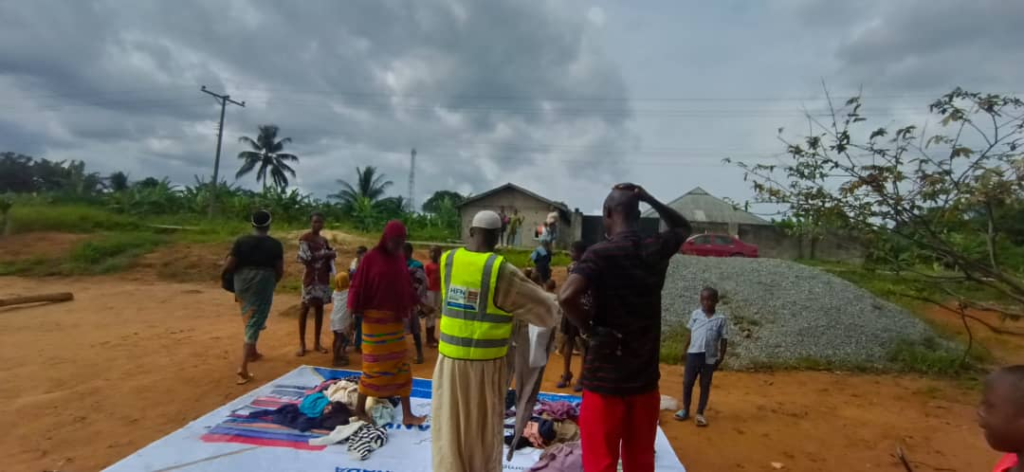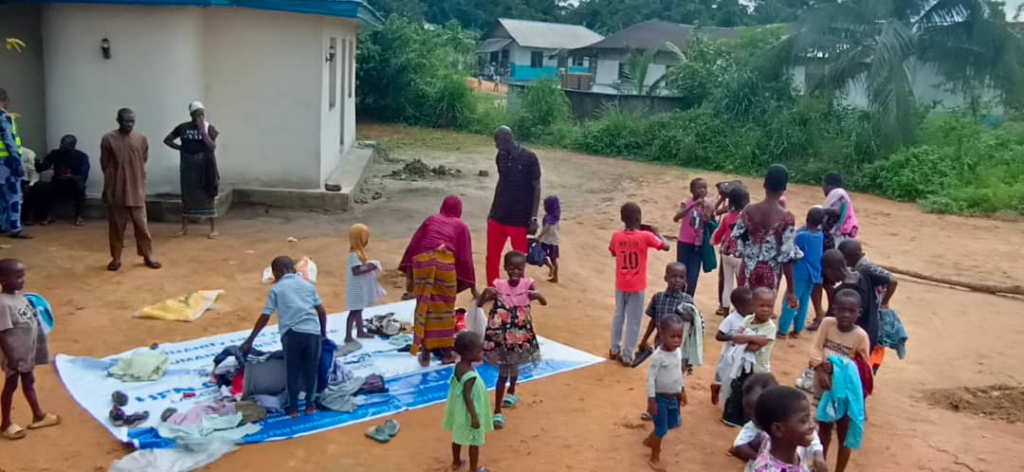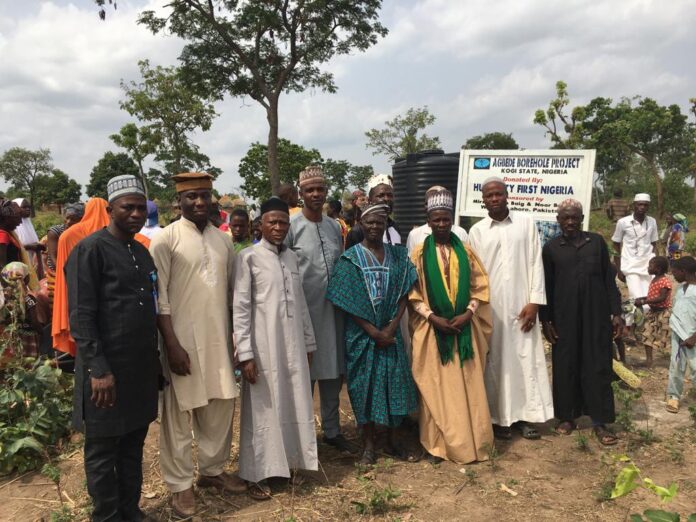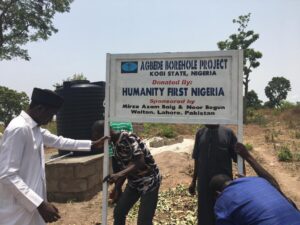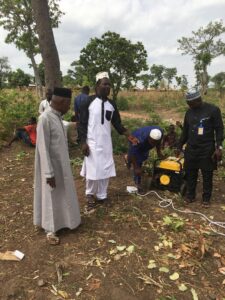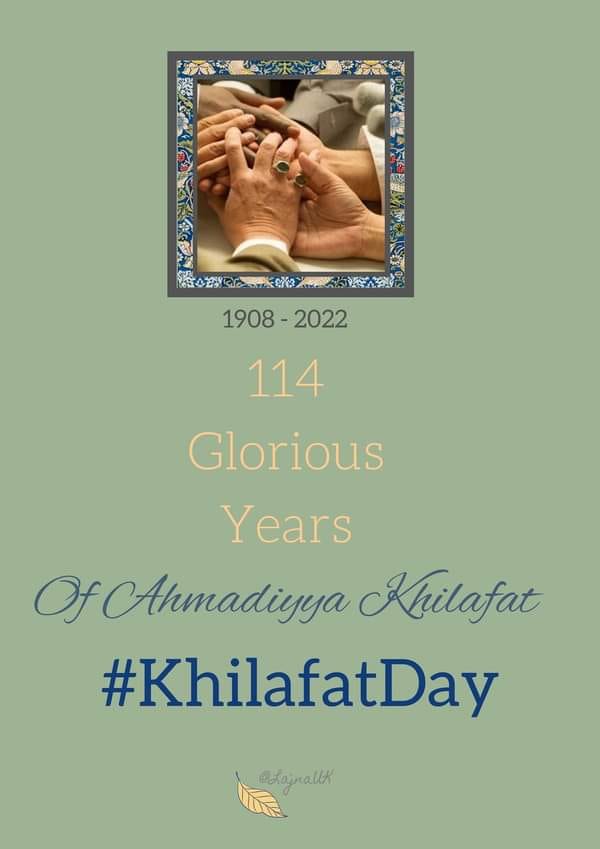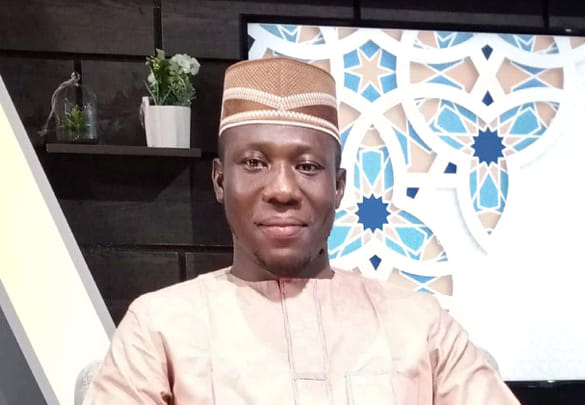After reciting Tashahhud, Ta’awwuz and Surah al-Fatihah, His Holiness Hazrat Mirza Masroor Ahmad (aba) said:
The Sacrifice of Abraham (as) & the Sign of God Almighty’s Promise
By the grace of Allah we are celebrating the day of Eid al-Adha, that is the festival of sacrifice. During this celebration we commemorate the sacrifice of a father, mother and a son, which took place over a thousand years ago. It was the sacrifice of Abraham (as) who left his wife and child in a barren wilderness, solely because it was the instruction of God Almighty. The level of faith displayed by his wife when she came to know this was from His Lord was unwavering, as she was sure that He would take care of them. Indeed, Allah Almighty provided everything that they required, and this became the start of a new population.
His Holiness (aba) said that every year now millions of people travel to that place which was once barren, but is now a sign of the promise of God Almighty. Furthermore, from the progeny came the greatest of all prophets, the Prophet Muhammad (sa) who was sent as a warner and bearer of glad tidings for the entire world. He showed the world the manner in which one ought to commemorate the great sacrifice of Abraham (as) and his family, and so Muslims all around the world display their love for God Almighty and sacrifice for his sake because of this.
Uniting under the Ardent Devotee of the Holy Prophet (sa), the Promised Messiah (as)
His Holiness (aba) then said that other than Islam there is no religion in the world, the followers of which are truly acting upon the teachings brought by their founder or prophet. There is no revealed book which remains in its pristine form, other than the Holy Qur’an. His Holiness (aba) said that even if many followers of Islam fail to act upon the true teachings of the Qur’an, Allah Almighty will always raise people who will follow it as is required. Thus in accordance with His promise, Allah Almighty sent the Ardent Devotee of the Holy Prophet (sa), the Promised Messiah (as) to complete the propagation of his religion. He came and challenged the entire world to bring forth any teachings which can compare to the Holy Qur’an, yet no one was able to do so successfully.
His Holiness (aba) explained that the Promised Messiah (as) came to show the world once again the true teachings of Islam, and to save the people from their self-concocted customs and innovations which were leading them away from the true spirit of Islam. Yet, instead of showing gratitude to God Almighty for this immense blessing, it is regretful to see that the Muslim world became staunch in their opposition to this appointee of Allah. Rather than uniting under this leader, Muslims are fighting amongst themselves, issuing edicts against each other and looting one another. His Holiness (aba) said that this Islam that they are presenting is not the true Islam. True Islam is of peace, love and harmony.
Celebrating True Eid by Spreading the Message of Peace & Accepting Promised Messiah (as)
His Holiness (aba) said that Abraham (as) prayed to God that the land becomes a place of peace and security, hence, the Muslims should realise that if they associate themselves with this holy precinct, and wish for this promise to be fulfilled, then they must harbour love, peace and harmony in their hearts rather than fight amongst themselves. Rather than opposing the Promised Messiah (as) who appeared in accordance with the prophecies of the Holy Prophet (sa) and committing injustices against his community, the Muslim world must celebrate the true Eid by spreading the message of peace and by joining his community. If they do not do so, then they can celebrate thousands of Eids and perform as many pilgrimages as they like, their Eids and pilgrimages will be that of those who oppose the teachings of Allah Almighty.
The Correct Way of Commemorating the Sacrifice
His Holiness (aba) stated that one should ponder as to whether the sacrifices of the Muslims can even gain any acceptance by Allah if they continue to commit grave injustices and perpetrate such persecution. What’s more, in certain areas of Pakistan announcements have been made that no Ahmadi is allowed to perform any sacrifice during the three days of Eid, be it for any reason. His Holiness (aba) said that when circumstances reach such a point then Allah Almighty also manifests His punishment. Ahmadi Muslims are actually those who understand the true spirit of sacrifice, and have pledged to sacrifice their lives, wealth, time and honour. His Holiness (aba) also addressed the Ahmadis to remain patient and that one day their patience would bear fruit, God willing, just as the patience and sacrifices of Abraham (as), Hagar (as) and Ishmael (as) bore fruit. They never let go of prayer and patience, and so the greatest blessings were manifested in the person of the Holy Prophet (sa) and his companions, who were from the progeny of Ishmael (as). So even today, Allah Almighty will not abandon anyone who is patient and makes sacrifices, He will certainly come to their aid. It is therefore our duty to submit to Allah even more and to increase our level of righteousness. We must strive to attain that spirit of sacrifice, if we desire to receive the pleasure of Allah and face our opposition.
His Holiness (aba) then said that the Promised Messiah (as) explained the manner in which one can reach this level of sacrifice when he stated that Allah Almighty has given examples for the commandments given to us. One is commanded to sacrifice oneself entirely, and the manifestation of that sacrifice is the animals we slaughter. Yet, it is not the blood nor the meat which reaches Allah, it is the righteousness in us. Hence, just as one slaughters an animal physically, they must be prepared to be sacrificed entirely for the sake of Allah. Only then will one’s prayers and sacrifices be accepted and only then will He remain with us.
Attaining Nearness to God Almighty & Analysing Our Standards of Sacrifice
Whilst explaining how to attain nearness to God Almighty, the Promised Messiah (as) explained that one must not associate any partners with Allah. But this does not only refer to physical statues and false gods. It refers to anything which comes in the way of getting closer to God and takes precedence. And so man has many deities which he becomes unaware of, that keep him away from getting closer to God. Hence, one must analyse their state in order to rectify it as soon as possible. Abraham (as) attained the high status by being ready to carry out a task which was painful to him, that is, to sacrifice his beloved son. And when one is prepared to actually make such a sacrifice, Allah Almighty removes them from harm.
His Holiness (aba) therefore said that during this Eid we must analyse our standard of sacrifice, loyalty, truthfulness and righteousness. The more we analyse ourselves as a community, the quicker the support and aid of Allah Almighty will arrive. Hence, we must pray that Allah Almighty increases us in our loyalty and fidelity, and that each and every man, woman and child reaches that level of sacrifice as displayed by Abraham (as), Hagar (as) and Ishmael (as).
Embodying the Same Spirit of Sacrifice & Dedication in this Day & Age
His Holiness (aba) said that he wished to answer a question which is often raised in the various meetings that are held, which is in relation to the upbringing of Waqf-e-Nau children. Many sermons have been delivered in this regard, but His Holiness (aba) explained that it is a great blessing that parents were able to present their children and dedicate them since Hazrat Khalifatul Masih IV (rh) established the Waqf-e-Nau scheme. He said that as long as the community continues to possess loyalty and devotion, and as long as the system of Khilafat remains within the community, this manifestation of that sacrifice will live on. But at the same time, the parents who are dedicating their children must remember that this dedication requires a sacrifice, the like of that presented by Abraham (as) and his son Ishmael (as). When Abraham (as) told his son what he thought about this sacrifice his father was commanded to make, this righteous child immediately replied that he must fulfil what is asked of him and that he would remain patient. Hence, when dedicating their children, parents should do so in the same manner, and not just out of some temporary emotions. They should raise them to have the same righteousness and understanding as Ishmael (as) possessed, otherwise, they will grow up and say that they cannot live on a small allowance whilst serving the community, and consequently abandon their dedication. Hence, the physical and spiritual state of the parents must remain high from the beginning to the end if they wish for their children to remain prepared to continue their dedication. Furthermore, those who are part of this blessed scheme must always ponder over how they are to increase in their sacrifices, dedication, and righteousness so that Allah Almighty continues to look after their needs.
His Holiness (aba) prayed that parents are able to fulfil their role and that their children are enabled to make sacrifices for the sake of their faith. Rather than drowning in worldliness, may they be those who, out of full loyalty and sincerity, render their services.
Plea for Prayer
His Holiness (aba) said that we should pray for those imprisoned in the way of Allah, that they be released as soon as possible, that their families remain protected and are granted patience and forbearance. We should pray for the children of martyrs, for all life-devotees, and that Allah grants the best reward to those who are rendering their services. We should pray that we all increase in our level of righteousness, devotion and sacrifice.
Before leading the silent prayer, His Holiness (aba) conveyed his good wishes of Eid Mubarak to everyone and prayed that we may all be the recipients of Allah Almighty’s grace and that our sacrifices are accepted.
Source: The Review of Religions.



